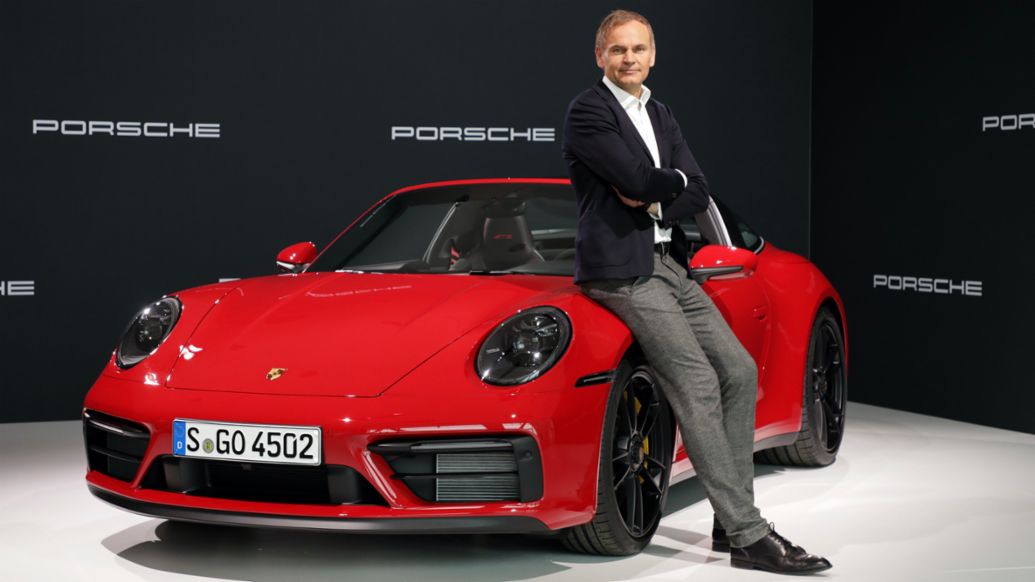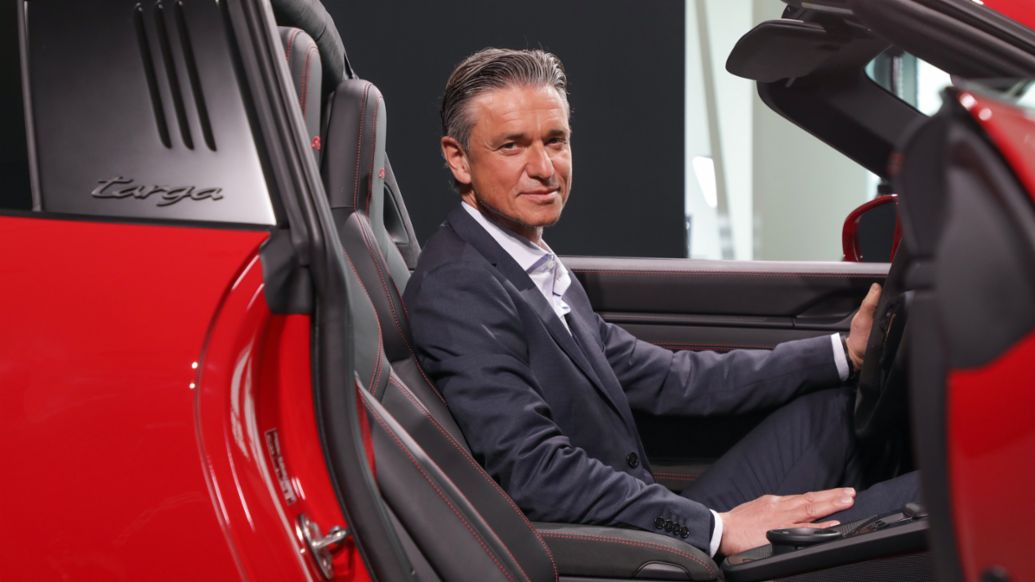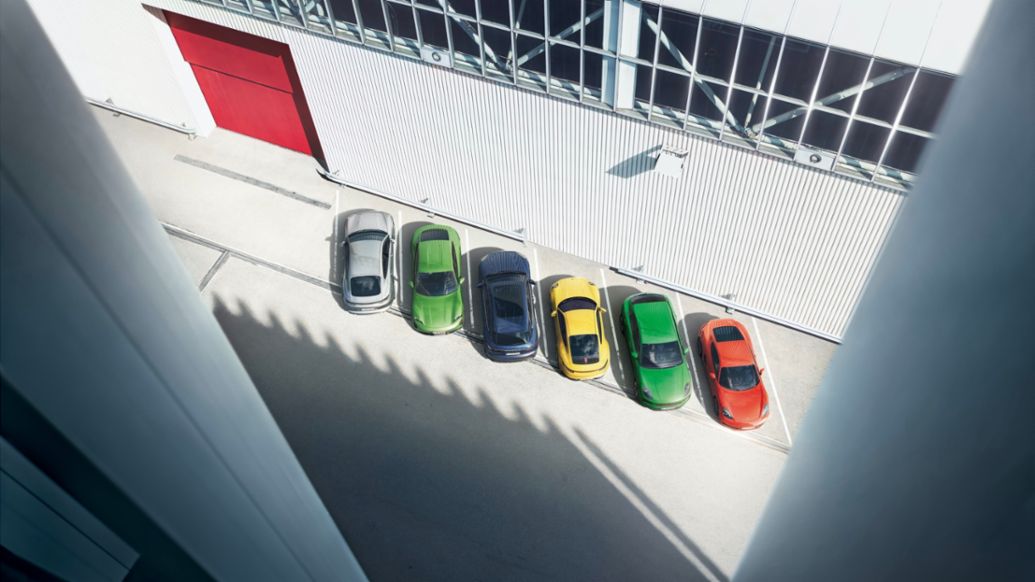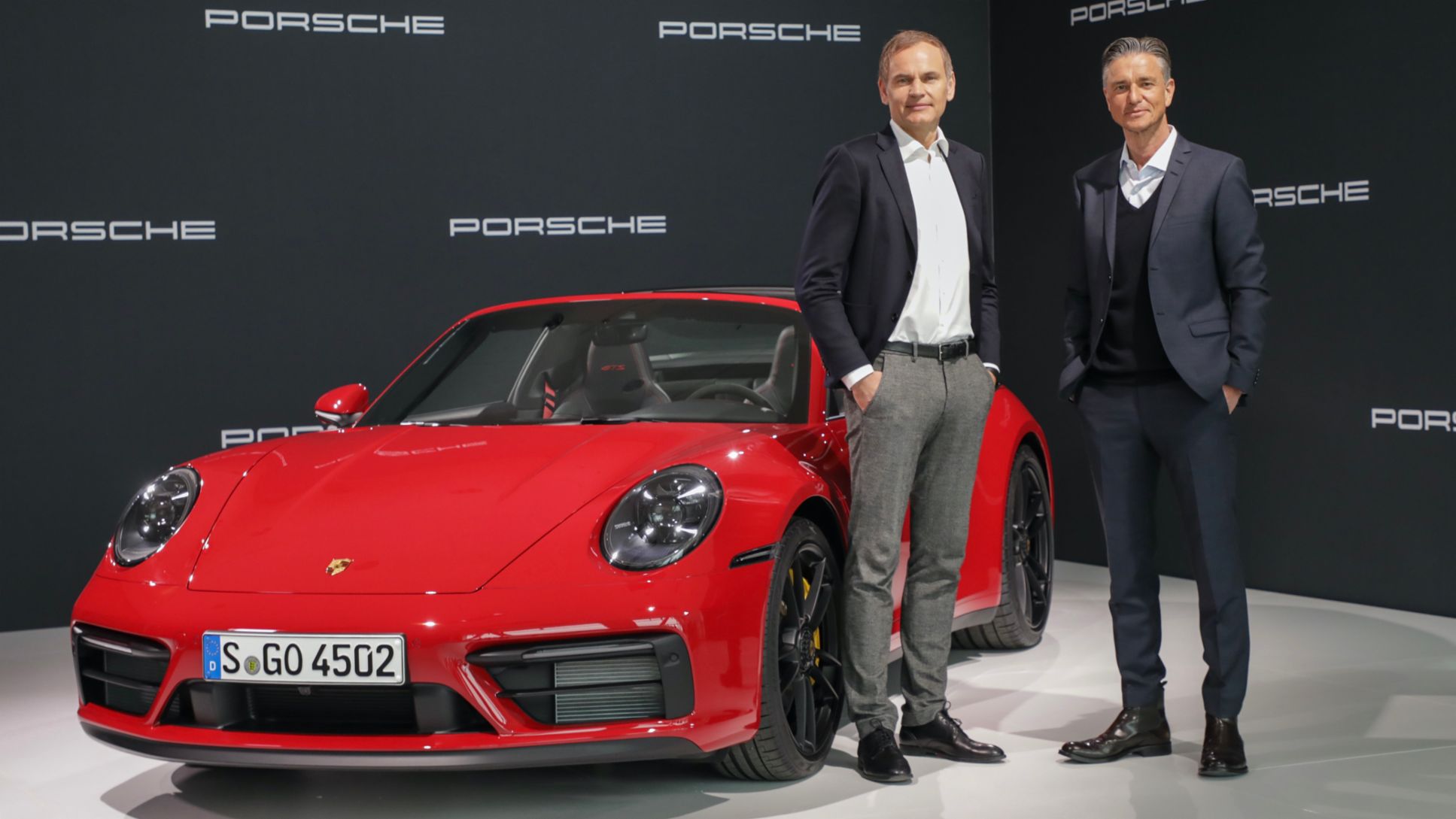For the full year 2022, the company targets revenues in the range of approximately 38 to 39 billion euros. At the same time, Porsche continues to focus on high-quality and exclusive products, electromobility and sustainability by combining its rich history and motorsport DNA with the future, redefining the concept of modern luxury.
"Porsche is a global and iconic luxury brand. We are 100 percent sports car and 100 percent luxury," says Oliver Blume, Chairman of the Executive Board of Porsche AG, on Monday at its Capital Markets Day at the company's Research and Development Centre in Weissach. "As an exclusive sports car manufacturer with the benefit of the economies of scale from our cooperation with Volkswagen Group, we are in the sweet spot of the luxury automotive industry. This results in structural growth opportunities for us."

With a passion for design, performance and the highest quality, Porsche is fulfilling the dreams of sports car fans around the world more than ever, he says. Blume announced that the product range would be expanded: "We plan to add a new luxury, all-electric SUV model to our attractive portfolio, which will roll off the production line in Leipzig. This will further expand our position in the luxury automotive segment. We are targeting the higher margin segments in particular and aim to tap into new sales opportunities in this way.”
Ambitious outlook
For the current fiscal year 2022, Lutz Meschke, Deputy Chairman and Member of the Executive Board responsible for Finance and IT, gives an ambitious outlook: Porsche is targeting revenues in the range of approximately 38 to 39 billion euros and a return on sales of approximately 17 to 18 percent. This is based on the expectation of continued positive currency tailwinds. Furthermore, the outlook is subject to assumptions including no deterioration in economic conditions or further disruptions in supply chains.
Porsche has further set itself the long-term ambition of achieving a return on sales of more than 20 percent. In this way, the company would like to consolidate its position as one of the most profitable car manufacturers in the world. "Beyond our mid-term targets, we are aiming for further upside potential, especially when it comes to our profitability levels. Porsche can look to the future with optimism from an impressive luxury position," emphasizes Meschke.

Porsche, like its peers, has experienced supply chain issues over the past three years due to, for example, the Covid-19 pandemic, semiconductor shortage and the war in Ukraine. However, during this period Porsche benefited significantly from its strong relationship with the Volkswagen Group, its long-term relationships with its suppliers and, most importantly, its high degree of flexibility and ability to adapt to challenging situations. Meschke: “We carefully monitor developments so that we are prepared to react and adapt as required.”
Porsche is redefining modern luxury
The term modern luxury applies not only to the products, but to the entire company. Meschke: "We see sustainability holistically: economically, ecologically and socially. It is important to us to assume responsibility and to be socially involved." A comprehensive understanding of sustainability is an integral part of Porsche’s strategy. In this regard, Porsche sets itself particularly ambitious goals, including its ambition that more than 80% of its delivered vehicles in 2030 will be BEVs. The next milestone on this path is to be the market launch of the all-electric Macan. In addition, Porsche’s ambition is to work towards a net carbon neutral value chain in 2030, including a net carbon neutral use phase for future BEV models. To this end, Porsche is systematically driving forward projects for the future.
The launch of a new Porsche model family always takes courage: stellar examples are the Cayenne (2002), Panamera (2009), Macan (2013), and most recently the first all-electric sports car, the Taycan (2019). Oliver Blume: "The Taycan is 100 percent electric and 100 percent Porsche. This combination excites people. We are pushing ahead with our electric offensive: by the middle of the decade, we want to offer our 718 mid-engine sports car exclusively in all-electric form."
Structural growth opportunities
In executing its strategy, Porsche was able to achieve new milestones in 2021 - despite a very challenging environment characterized by the ongoing Covid-19 pandemic and semiconductor bottlenecks: delivering more than 300,000 vehicles and generating revenues of 33.1 billion euros. Both are historic highs for Porsche. Taycan deliveries alone more than doubled to 41,296 units in 2021. At the same time, Porsche has achieved high profitability: Porsche AG's group operating profit rose by 27 percent year-on-year to 5.3 billion euros (2020: 4.1 billion euros). This corresponded to a return on sales of 16 percent. The automotive EBITDA margin was 24.5 percent, and automotive net cash flow improved to almost 3.7 billion euros (2020: 2.2 billion euros).

According to expert studies, the luxury car market is expected to experience robust growth in the coming years, with battery electric vehicles (BEVs) and sport utility vehicles (SUVs) in particular being the main growth drivers. Porsche is thus active in market segments that point towards a significant growth potential for the future.
"We are very well positioned to benefit from these trends. Porsche is a leading player in the market for sporty SUVs and in the all-electric luxury car segment," says CFO Meschke. "Although we are clearly positioned in the luxury automotive segment, we benefit from significant economies of scale," adds CEO Blume.
New customer groups in sight
Porsche's portfolio is operating in a highly attractive environment: "Demand for our vehicles is robust and the number of potential customers continues to grow," says Meschke. Across the globe, the company is well positioned: Europe, North America and China contribute roughly equally to total deliveries. For the future, Porsche anticipates that its clientele will include younger and more heterogeneous customers from the next generation. At the same time, the proportion of women in this customer group is likely to increase. In addition to Europe and the Asia-Pacific region, the sports car manufacturer is focusing primarily on the USA and emerging markets for its geographical expansion.
Disclaimer
This press release contains forward-looking statements that reflect Porsche’s current views about future events. The words “will,” “target,” “aim,” “ambition”, “anticipate,” “assume,” “believe,” “estimate,” “expect,” “intend,” “may,” “can,” “could,” “plan,” “project,” “should and similar expressions are used to identify forward-looking statements. These statements are subject to many risks, uncertainties and assumptions. If any of these risks and uncertainties materializes or if the assumptions underlying any of Porsche’s forward-looking statements prove to be incorrect, the actual results may be materially different from those Porsche expresses or implies by such statements. Porsche does not intend or assume any obligation to update these forward-looking statements since they are based solely on the circumstances at the date of publication.
The forward-looking financial information set forth above is based on a number of assumptions, including no significant deterioration of economic conditions or the COVID-19 pandemic situation in Porsche’s main markets, no significant disruptions in the supply chain, especially relating to semiconductors, energy and materials parts and components, no material price increases of raw materials and no further escalation of the war in Ukraine. Such forward-looking financial information also assumes that in the second half of the fiscal year 2022 the euro remains weak against the currencies of Porsche’s main markets.
This press release also contains statements relating to certain of Porsche’s sustainability-related ambitions, including without limitation in relation to electrification of its vehicles and its ambition to work towards a net carbon neutral value chain, including a net carbon neutral use phase for future BEV models (including its ambition to procure green energy certificates to enable such net carbon neutral use phase). Emissions from cars delivered in previous years, before achieving net carbon neutrality, will not be included in the assessment of carbon neutrality. Such ambitions are subject to progress made in individual areas, such as technological advancements, market and regulatory developments and other matters that in certain cases cannot be influenced by Porsche, and therefore might not be achievable. In addition, offsets (including carbon reduction and carbon removal) are included in Porsche’s decarbonization ambitions.
Certain industry, market and competitive position data contained in this press release come from third party sources. Third party industry publications generally state that the information they contain originates from sources assumed to be reliable, but that the accuracy and completeness of such information is not guaranteed and that the calculations continued therein are based on assumptions. While Porsche believes that each of these publications has been prepared by a reputable source, neither Porsche nor any of its representatives have independently verified the market data and other information on which third parties have based their studies or make any representation or give any warranty as to the accuracy or completeness of such information. Accordingly, reliance should not be placed on any of the industry, market or competitive position data contained in this press release.
Info
The entire recording of the event will be available on the capital markets website at www.porsche.com in a timely manner.


